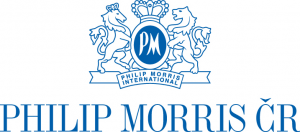Things Are Looking up for the Market of Translation Services
22.07.2010Company: Amcham
In 2009 the situation in the market of translation services was very unstable and the market got into troubles as did markets in the majority of other industries. Due to the drop in demand the overall amount of carried out services decreased by 10 – 15% (note. an expert estimate).
Translation business within the sector of language services is quite specific since it is related directly to the situation of clients. Amounts of orders differed significantly by individual segments. The most significant drop was observed in the sector of advertising, marketing and PR translations which was directly connected to the drop in demand for the above-mentioned services.
“The number of orders of translation agencies which concentrate on these specific translations suddenly dropped dramatically (up by 60%), and for some of them it was the beginning of their end. On the other hand, in the sector of legal and financial services the drop in the market was not so extensive, because due to the economic recession there appeared a lot of mergers, legal disputes, financial audits, seizures, etc. Drop in this area can be expressed in the order of units. The third large category is the industry, where translation services encompass mainly technical translations, such as standards and specifications or offers and bids for foreign customers. This sector has also recorded a significant drop, nevertheless right here we can see the first indications of recovery in demand for translation services,” says Vítězslav Bican, Executive Director of Channel Crossings translation agency.
In connection with the above-mentioned problems all translation agencies try to maintain their market shares and number of orders. Some of them have submitted to the pressure on price, but often at the expense of quality of provided services. However, the majority of agencies have not submitted to the general pressure on price reduction and do their best to maintain their current clients and to get new ones with the help of other (non-price) instruments.
The instruments that are still more and more favoured include signalling of high quality services. The guarantors of quality in the area of translation services are quality management certificates. Almost a must nowadays is ISO 2001:2008 certification, which is now often supplemented by specific translation certification ČSN EN 15038:2006. There are nearly ten translation agencies that have already passed this demanding certification process and their number is continually increasing. The accredited certificate of translation services issued by an independent third party is a very simple tool which helps clients distinguish a professional from other providers.“
During the period of drop in the number of orders our agency has not stayed idle. At the beginning of 2010 we have successfully defended ISO:2001 certification, and newly we are also certified under ČSN EN 15038. This standard stipulates requirements for provided translation services from the viewpoint of sources, quality, and the management of translation projects as well as relations between the translation services provider and the customer,” says Vítězslav Bican from Channel Crossings.
For the future we may predict that among language services it is just the area of translation and interpreting which will be the first to recover from the general drop and return to the “pre-crisis” level. However, it is already quite certain that the whole translation market is going to change. The number of agencies will be reduced and customers will able to better recognize the ones that really see to it that provide high quality and professional services.
http://www.chc.cz/







